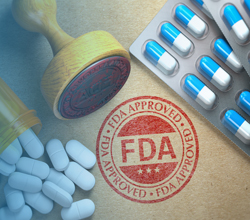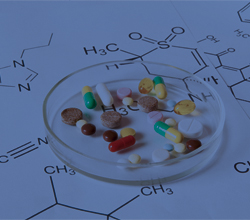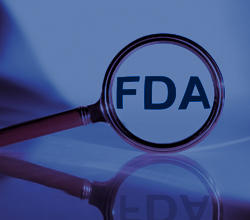
Data Integrity and Privacy: Compliance with 21 CFR Part 11, SaaS/Cloud, EU GDPR
 David Nettleton
David Nettleton
 90 Mins
90 Mins
Product Id: 701687
This 21 CFR Part 11 compliance training will guide you through the requirements of Part 11 and will also explain its 3 primary areas: SOPs, product features and validation (10 step risk based approach).

You have a BI Positive or Product Sterility Positive - Now What?
 Gerry O Dell
Gerry O Dell
 75 Mins
75 Mins
Product Id: 703288
This webinar explains what actions should be taken following an unexpected positive result in a sterility test on a biological indicator (BI) during performance qualification or routine testing. It also addresses the actions to take when a test of sterility demonstrates unexpected growth during validation or routine dose audits. The various items that should be investigated to determine the root cause and the follow up to the investigation will be covered.

Human Error Investigations, Root Cause Determination and CAPA Effectiveness
 Ginette M Collazo
Ginette M Collazo
 90 Mins
90 Mins
Product Id: 704314
This training program will offer attendees an understanding of human error, its factors and causes. The program will also identify the regulatory and business importance of human error prevention and define the process to manage human error deviations.

Current Trends in FDA Inspections
 Michael Ferrante
Michael Ferrante
 90 Mins
90 Mins
Product Id: 703485
This webinar will focus on the current trends in FDA inspections and guidelines that can be implemented to ensure compliance with the latest quality and regulatory requirements. Attendees will learn how to prepare for an FDA inspection to avoid Warning Letters.

Process Simulation Testing for Aseptically Filled Products; An In-depth Examination of the Latest Product Sterility Assurance Levels Prescribed by GMPs
 Barry A Friedman
Barry A Friedman
 90 Mins
90 Mins
Product Id: 706882
The objective of this live, interactive training webinar is to explore the role of media fills in assuring that manufactured product will retain the sterility assurance level prescribed by GMPs. It will review the issues regarding preparing media and setting up the “filtration train”, environmental monitoring, interruptions that may occur during the operation of the Clean Room (planned and unplanned) and the cleaning of the room and its equipment. Equipment used to monitor the equipment and personnel will also be reviewed along with gowning issues that periodically arise. The webinar will also discuss media failures and how to “work through” them. Because of the sensitivity and importance of media fills, this live, interactive training webinar is a MUST for anyone in your organization that is involved in aseptic filling in general and media fills, in particular.

FDA Guidance for Use of Social Media by Regulated Industries
 Carolyn Troiano
Carolyn Troiano
 90 Mins
90 Mins
Product Id: 707033
This webinar training will help you understand in detail the application of FDA’s draft guidance documents on the use of social media in presenting and promoting information about drug products and medical devices subject to FDA regulation. This is critical in order to develop the appropriate strategy, policies, and procedures to ensure compliance.

Ensuring Data Integrity and Minimizing Human Error: Practical Strategies and Tools for Success
 Ginette M Collazo
Ginette M Collazo
 90 Mins
90 Mins
Product Id: 707034
Data integrity is a critical component of compliance and operational success in regulated industries such as pharmaceuticals and medical devices. Ensuring that data remains accurate, complete, and consistent throughout its lifecycle is essential for maintaining trust and meeting regulatory expectations. However, human error poses a significant threat to data integrity, with mistakes in data entry, processing, and analysis leading to costly breaches and compliance risks.

The 6 Most Common Problems in FDA Software Validation and Verification
 David Nettleton
David Nettleton
 120 Mins
120 Mins
Product Id: 705582
This training on FDA software validation and verification will provide you the best practices necessary to ensure that all systems are validated in compliance with FDA regulations.

FDA Compliance for Regulated Systems Using COTS, Cloud & SaaS Solutions
 Carolyn Troiano
Carolyn Troiano
 90 Mins
90 Mins
Product Id: 707035
Advancements in technology have forced organizations to rethink business models. Once controlled and orderly, these organizations are now more chaotic and complex, serving patients and customers that are better informed and with higher expectations than ever before. Work practices and tools must change to meet these challenges.

Quality Agreements and Their Role as Part of a Quality System
 Michael Ferrante
Michael Ferrante
 90 Mins
90 Mins
Product Id: 706966
This webinar will focus on the Process for Quality Agreements and requirements that must be implemented to ensure compliance with the latest quality and regulatory requirements. Attendees will learn the reason for implementing a Quality Agreement system to assure adequate controls for Service Providers.

Excel Spreadsheets; Ensuring Data Integrity and 21 CFR Part 11 Compliance
 David Nettleton
David Nettleton
 75 Mins
75 Mins
Product Id: 701582
Learn how to use Microsoft Excel spreadsheets for GXP data to ensure compliance with 21 CFR Part 11 and reduce validation cost and time.

Computer System Validation (CSV) vs. Computer System Assurance (CSA): Aligning the Agile Methodology to the GAMP®5 "V" Model and System Development Life Cycle (SDLC) Methodology
 Carolyn Troiano
Carolyn Troiano
 120 Mins
120 Mins
Product Id: 706921
As part of the Case for Quality program US FDA Center for Devices and Radiological Health noted how an excessive focus by industry on compliance rather than quality may be diverting resources and management attention toward meeting regulatory compliance requirements vs. adopting best quality practices. There has also been a lower than anticipated investment in automation and digital technologies, which could greatly improve quality and process control. A key element is a risk-based, product quality and patient-centric approach to Computer System Assurance (CSA) vs. the traditional Computer System Validation (CSV) waterfall approach. This encourages critical thinking based on product and process knowledge and quality risk management over prescriptive documentation driven approaches.
This is where FDA determined that “WHAT” is required can be done (the “HOW”) in different ways and does not have to be according to the “checklist” mindset of most CSV work, where you create documents without specifically addressing the risk of potential failure of each requirement.
GAMP®5 supports the use of incremental, iterative, and evolutionary approaches including agile, for development of custom applications. Keys to success include a robust Quality Management System and well trained and highly disciplined teams following well-defined processes supported by tools and automation.

Risk Management of Raw Materials in a GMP Environment
 Barry A Friedman
Barry A Friedman
 90 Mins
90 Mins
Product Id: 706909
The objective of this live, interactive webinar is to explore raw materials in a cGMP environment, their various regulatory requirements and how they may affect the timeline of meeting the release date of your Company’s products. Please plan to bring additional personnel to the webinar to obtain cross-Departmental training.

Troubleshooting Ethylene Oxide (EO) Processes
 Gerry O Dell
Gerry O Dell
 75 min
75 min
Product Id: 701679
Not every parameter in the EO sterilization process in critical for the determination of the product’s sterility assurance level (SAL). This presentation will outline the various parameters and what actions should be taken when they are not compliant to the process specification. These actions can be as simple as a rationale for release to as complicated as the need for the qualification of a new sterilization process. How to decide the actions to take will be addressed along with the reasons behind the decisions so that an accurate and complete justification of your decision can be made for both management and regulatory agencies. The rationales for both conventional and parametric release will be addressed.

FDA's New Software Validation Requirements
 John E Lincoln
John E Lincoln
 90 Mins
90 Mins
Product Id: 706952
CGMP companies must develop / implement formal software V&V for medical product under IEC 62304 and a key US FDA Guidance Document.

Mapping and Review of Pharmaceutical Warehousing and Distribution Workflows
 Michael Esposito
Michael Esposito
 90 Mins
90 Mins
Product Id: 707026
Mapping and evaluating all the steps in a pharmaceutical warehousing and distribution workflow can lead to valuable process improvements. In this webinar, we discuss how this review can be accomplished and the possible benefits that can result.

Good Documentation Practice (GDP) and FDA Validation Compliance for Regulated Computer Systems and Data
 Carolyn Troiano
Carolyn Troiano
 90 Mins
90 Mins
Product Id: 706925
Computer system validation has been regulated by FDA for more than 30 years, as it relates to systems used in the manufacturing, testing and distribution of a product in the pharmaceutical, biotechnology, medical device or other FDA-regulated industries. The FDA requirements ensure thorough planning, implementation, integration, testing and management of computer systems used to collect, analyze and/or report data. Electronic records and electronic signatures (ER/ES) came into play through guidelines established by FDA in 1997, and disseminated through 21 CFR Part 11. This code describes the basic requirements for validating and documenting ER/ES capability in systems used in an FDA-regulated environment.

Analytical Method Validation and Transfer
 Kelly Thomas
Kelly Thomas
 90 Mins
90 Mins
Product Id: 706186
This course will provide a thorough review of regulatory guidelines on method validation and transfer. It provides guidance on how to perform QC analytical test method validations and transfers.

Conducting Effective Quality Audits: Beyond Audit Checklists
 Michael Ferrante
Michael Ferrante
 60 Mins
60 Mins
Product Id: 703539
This webinar will teach attendees best practices for conducting effective quality audits to ensure regulatory compliance. Learn how to avoid potential pitfalls during the audit process.

Managing Microbiological Out of Specification (OOS) and Out of Trend (OOT) Results in Sterile and Non-Sterile Production FDA & ICH Expectations and Guidance
 Barry A Friedman
Barry A Friedman
 90 Mins
90 Mins
Product Id: 706884
The objective of this interactive, live training webinar is to explore the management of OOS practices and suggested avenues to take to minimize deviations, OOT, OOS and CAPA and how to attack these situations should they occur. It is also designed to determine how FDA and ICH regulations and guidances may impact them. It will also reference the new PDA TR 88, “Microbial Data Deviation Investigations in the Pharmaceutical Industry”.


























